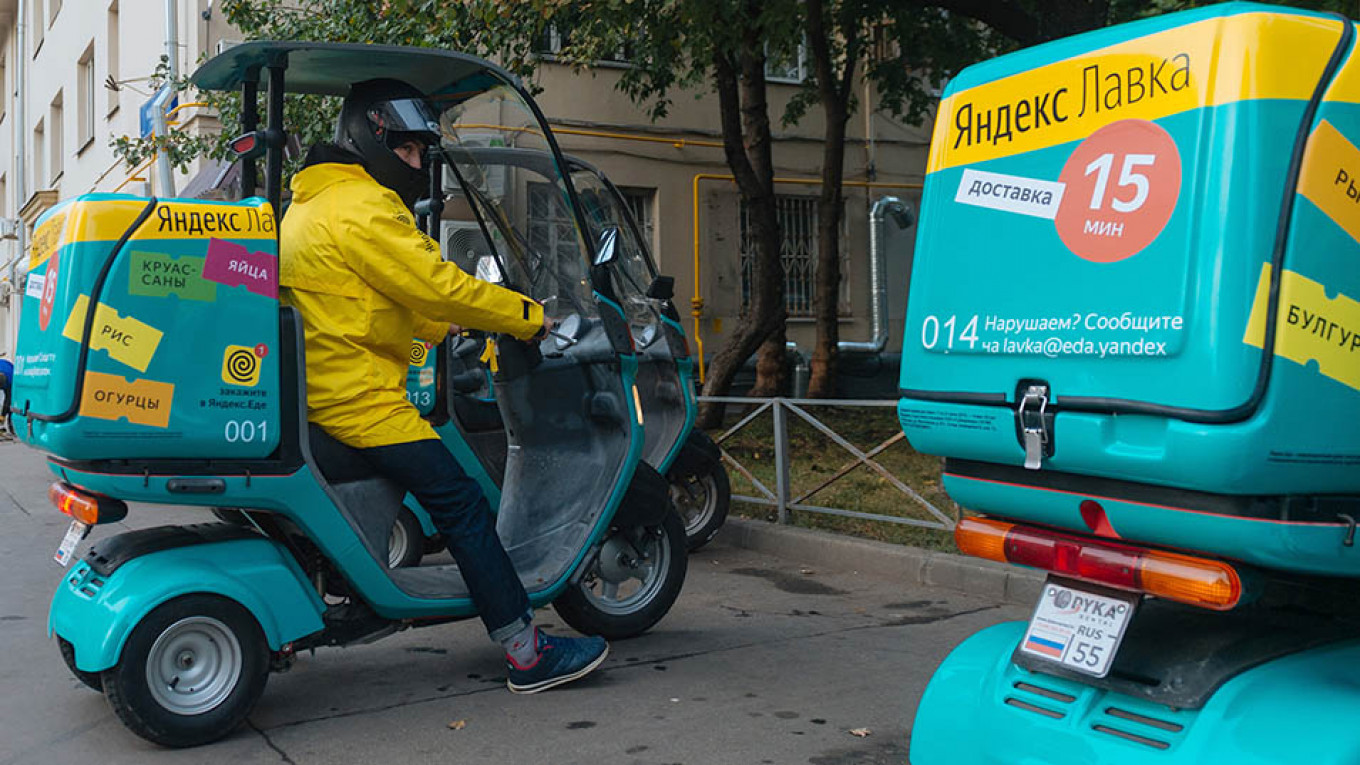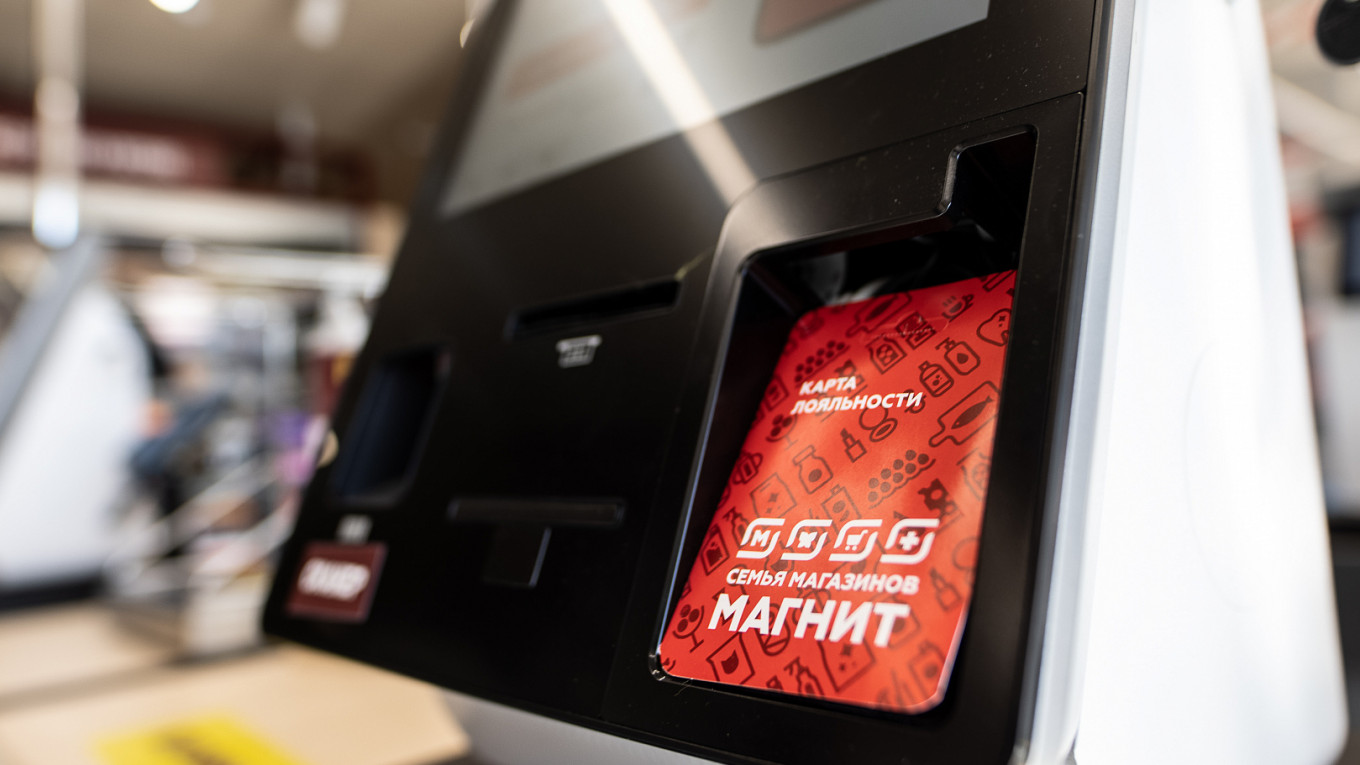Two of Russia’s top supermarket chains have announced multi-million dollar deals to buy out competitors this week as they vie to boost their footprints in Russia’s lucrative grocery industry.
Magnit — the single largest supermarket brand in Russia — inked a 92-billion ruble ($1.25 billion) deal Tuesday to buy out the discount Dixy retail chain, while Lenta signed Wednesday to buy out the Billa chain of stores for 215 million euros ($263 million).
The deals are the biggest changes in Russia’s grocery market for years and signal the start of what analysts and company insiders say could be a new wave of consolidation and competition for market share among the top players.
“When we compare the Russian market with that of western Europe, the Russian market is far more fragmented,” Lenta CFO Rud Pedersen told The Moscow Times.
Russia’s five largest grocery chains control less than a third of the entire market — half the comparable market share in many western European countries.
“There will be consolidation,” Pedersen said.
Alongside mergers and acquisitions to grab more physical shelf space, Russia’s traditional offline supermarket chains also face a challenge from new market entrants — the country’s leading technology firms such as Yandex, Mail.Ru and Ozon, who are all investing heavily in the online food retail industry, prioritizing rapid grocery services that promise delivery within minutes.
Magnit’s pull
Under its deal announced Tuesday, Magnit is set to acquire more than 2,600 Dixy stores for 92 billion rubles ($1.25 billion). Half of the stores will be in Moscow and another 18% in St. Petersburg — “an aggressive move into regions in which Magnit traditionally struggles,” VTB Capital’s Maria Kolbina said.
Getting a sizable presence in the Russian capital could be crucial in Magnit’s battle to overhaul rival X5 Retail Group’s position as Russia’s largest grocery conglomerate in the country.
Magnit, whose largest shareholder is the state-run VTB Bank and is headquartered in Russia’s southern city of Krasnodar, has a huge network of stores across Russia’s south, but little exposure in the capital.
Amid a nationwide crunch in living standards and given Russia’s disparate geography, a strong foothold in comparatively wealthy Moscow and St. Petersburg, with their dense populations of almost 20 million, could be the key factor in who emerges on top from the looming consolidation wave that companies were publicly gearing up for even before the coronavirus pandemic.
“These are regions with high disposable incomes in which Magnit historically has had little presence,” said Sova Capital’s Artur Galimov, explaining why the deal was so attractive to the retailer.
Upon completion of the deal, which is subject to approval by Russia’s competition regulator, Magnit will own more than 24,000 retail outlets across Russia, and sales could be just 6% behind the combined revenue of X5’s Pyaterochka and Perekrostok brands, VTB Capital estimates.
Dixy is part of the DKBR retail conglomerate. Before merging with two other retail chains in 2019, Dixy was Russia’s fifth largest food retailer, but the chain has not published independent sales figures since then.
The scale of Magnit’s deal is sure to spook X5, which had been winning the race to be Russia’s number one food seller.
“X5 will not want to give up its leadership position so easily,” said retail expert Ivan Fedyakov, predicting that more deals will follow.
In an investor presentation earlier this year, X5 said it believes the Russian food market will consolidate to a point where the top firm controls at least 20% of the market, with a second dominant chain holding a 15% market share.
Both X5 and Magnit have said they want to reach that 15% threshold within the next two years. While X5 also has a healthy slice of Russia’s small but rapidly growing online food sector to complement its network of physical stores, Magnit’s presence has been largely restricted to the offline space so far.
“Magnit will probably be hungry to buy up other assets. And Dixy is not the only chain which is ready to sell,” Fedyakov said.
Magnit’s shares rose 3% after the deal was announced.
Lenta tie-up
Lenta’s deal to buy 161 Billa stores in a transaction worth 215 million euros ($263 million), is also focused on boosting the retailer’s presence in the crucial Moscow market, CFO Pedersen told The Moscow Times.
Unlike Magnit, however, Lenta is not targeting market domination on a national level.
“Our ambition is to double the sales of the company in five years ... But we are not focusing on becoming the biggest overall player in Russian food retail, rather being number one or number two in the regions where we compete.”
It too seeks its fortunes in Russia’s densely populated cities.
“Our growth ambitions are centered on three regions — Moscow, St. Petersburg and [Russia’s third largest city] Novosibirsk.”
The deal will make Lenta the fourth-largest player in the capital’s food retail sector and give the chain, which has typically run large hypermarkets, smaller stores in more prime locations closer to residential areas — key to capitalizing on the convenience segment of the market.
This is likely to bring the chain into closer competition with Russia’s online companies — such as Yandex, Mail.Ru and Ozon. The tech giants are investing heavily in the express grocery segment, renting out hundreds of so-called “dark stores” — mini warehouses often on the ground floors of apartment blocks from which armies of couriers ferry deliveries to nearby addresses — across Moscow to allow them to fulfil orders within minutes.

While the last few years has been characterized by a steady stream of new entrants into this part of the market, Pedersen is not worried.
“Many are trying their luck or testing their business model, but we expect that there will be fewer players in that space — whether that will be through consolidation or some simply closing their business.”
Lenta wants to become a “relevant player” in the online space and believes buying out Billa will help it on that front, providing more stores from which online orders could potentially be dispatched, but it’s main focus is still the offline space.
Lenta’s shares rose 2% on Wednesday after the deal was announced. “There is a strategic rationale behind the deal,” said Sova Capital’s Galimov, though he notes the price paid was not “cheap” and that Lenta’s core business was already “far from perfect and needs to be fine-tuned — which makes the task of integrating Billa more challenging.”
Price points
With these challenges in mind, both deals have won the cautious approval of investors and analysts. But it is less clear what a sustained period of consolidation could mean for consumers — a thorny issue amid rising food prices and political pressure being heaped on retailers to keep inflation in check.
Lenta’s Pedersen said as retailers combine and gain larger market shares it will allow them to strike better deals with suppliers, which could help lower prices on the shelves. He says price rises in Lenta stores are running below Russia’s official inflation rate and hopes the deal with Billa will increase his bargaining power with manufacturers, allowing some savings to be passed onto consumers.
Russia also has strict competition rules in place to stop a single company controlling the market — no business is allowed to have a market share of 25% or more in any one of Russia’s 85 regions.
But some analysts say that as the market clusters around a few big players competition between the chains could recede, which would be bad news for shoppers.
Fedyakov fears that as the “diversity of formats, concepts and business models” declines, suppliers and consumers will be squeezed, with the retail companies and their owners being the big beneficiaries.
“I am convinced that this consolidation process will have a negative impact for both suppliers and consumers,” he said.
A Message from The Moscow Times:
Dear readers,
We are facing unprecedented challenges. Russia's Prosecutor General's Office has designated The Moscow Times as an "undesirable" organization, criminalizing our work and putting our staff at risk of prosecution. This follows our earlier unjust labeling as a "foreign agent."
These actions are direct attempts to silence independent journalism in Russia. The authorities claim our work "discredits the decisions of the Russian leadership." We see things differently: we strive to provide accurate, unbiased reporting on Russia.
We, the journalists of The Moscow Times, refuse to be silenced. But to continue our work, we need your help.
Your support, no matter how small, makes a world of difference. If you can, please support us monthly starting from just $2. It's quick to set up, and every contribution makes a significant impact.
By supporting The Moscow Times, you're defending open, independent journalism in the face of repression. Thank you for standing with us.
Remind me later.







